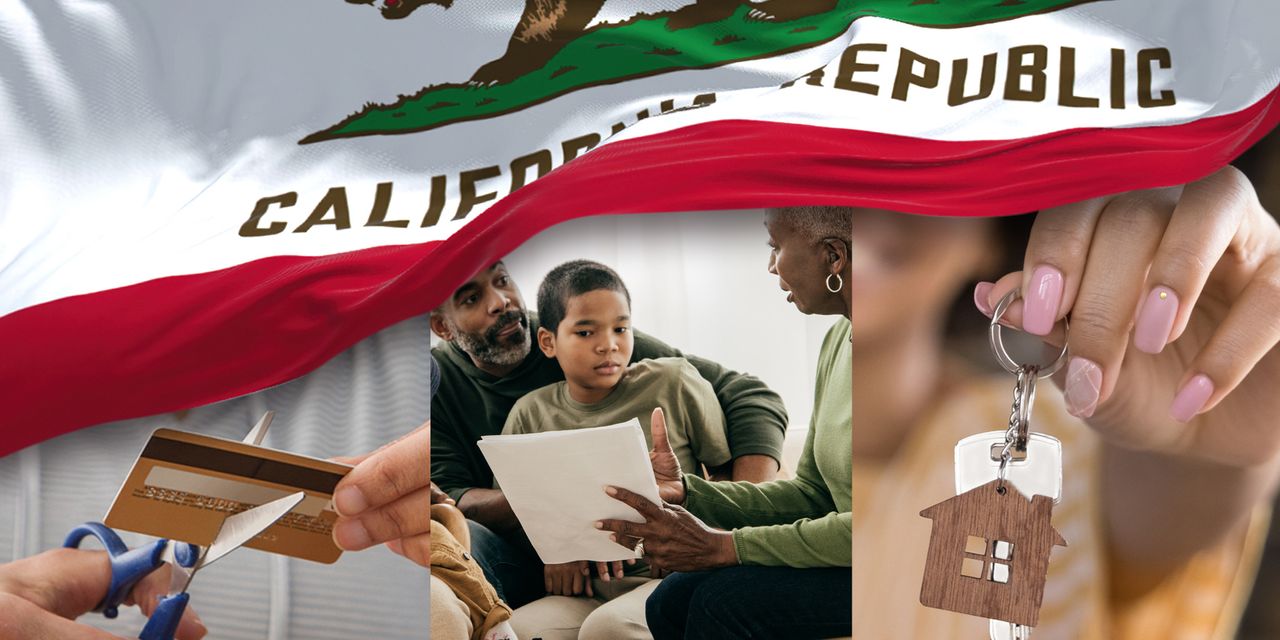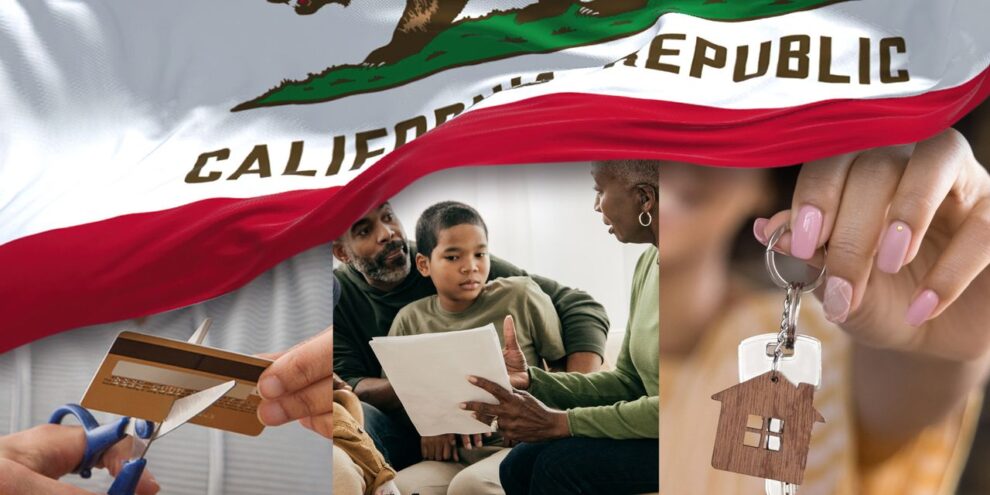
California’s reparations task force has less than three months to submit its final recommendations for the largest attempt in U.S. history to compensate Black descendants of enslaved people for harms done to them — and there are still some important questions left to answer.
The nine-member group, established by law to study and recommend reparations and the first of its kind at the state level, released an interim report last year. It must submit its final recommendations to the state legislature by June, and it will hold its last scheduled in-person meeting Friday and Saturday in Sacramento.
At that meeting, the panel will attempt to finalize answers to five key questions that will determine what the final proposal includes:
- What are the damage time frames? The task force determined certain harms that have affected Black Americans that it wants to help repair. Now it wants to decide the exact years the damages span.
- Related to the above, the group is trying to establish what year determines the beginning of harm, and whether there are different starting points and end points for each category.
- How should California residency eligibility be determined? For example, the task force has discussed whether residents should have lived in the state for decades if they are to be deemed eligible for possible reparations.
- Will direct victims and/or all African-American descendants of enslaved people who meet the California residency requirement be compensated? The task force previously decided that eligibility will be lineage-based, for descendants of Black people enslaved in the United States.
- How will reparations be paid and measured so that the payment aligns with damage estimates?
Any reparations will be based on five main harms: unjust property takings; devaluation of Black businesses; housing discrimination and houselessness; mass incarceration and overpolicing; and health harms. So far, the amounts associated with trying to repair those harms total hundreds of thousands of dollars at the least, as calculated by economic consultants enlisted by the task force.
Over the past year and a half, the task force has discussed monetary compensation for the harms, as well as policy recommendations, that run the gamut. They include making changes to the education system; reforming the criminal-justice system; compensating artists who have been deprived of profit; reforming government-provided healthcare; and establishing a Freedmen’s Bureau.
Chris Burton, a 34-year-old social worker in San Francisco who thinks he would be eligible for reparations from California, has followed the task force’s work. He told MarketWatch that he is both optimistic and pessimistic about the possibilities.
He attended the task force’s meeting in Oakland late last year and was a bit dismayed by what he considered meager turnout. MarketWatch was in attendance, and estimates that at least three dozen or so people were present in the city-council chambers at any given time during the two-day meeting.
From Oakland: Reparations tally could surpass half a million dollars, but task force also wants to change California policies
“Considering what’s at stake, and that it could possibly be transformative, not to have it surrounded by Black people and allies — that was indicative of where this is going,” Burton said, adding that he doesn’t think there has been enough media coverage of the effort.
One of the task force members, State Assemblyman Reggie Jones-Sawyer, said in response to MarketWatch’s questions about complaints of inadequate media coverage that despite the law prohibiting the task force from having its own website and social-media platforms, the “coverage of public hearings has been good with local, regional, state and national stories posted.” He added that he and his colleagues have been interviewed by the media “on a monthly basis without fail.”
Burton is also worried that many Californians will be against reparations for descendants of enslaved Black people. He said he has talked to Black immigrants, who wouldn’t be eligible; Asian neighbors; and others who don’t support reparations.
“I work in supposedly liberal San Francisco,” Burton said. “They were extremely mad when [former San Francisco 49ers quarterback] Colin Kaepernick was kneeling [to protest police brutality]. Can you imagine how they would feel about having to give their money [toward reparations]?”
At the meetings, task-force members have acknowledged that they are receiving pushback from some members of the public. But among the materials for the presentations scheduled for this weekend is a list of an array of groups that endorse the task force’s work and/or the reparations idea. They include the Asian Law Caucus, the Japanese American Bar Association, the Mexican American Bar Association, the Korean American Bar Association of Southern California, the Philippine American Bar Association and the Thai American Bar Association.
The task force also could recommend a point-counterpoint list of “reparations denunciations and responses” in the final report, according to material from what one task-force advisory committee is expected to discuss at the meeting.
At the final scheduled in-person meeting, the task force is set to hear Friday from expert witnesses who are expected to talk about implementing its recommendations. The witnesses include racial-justice activists and experts in constitutional law, education and healthcare, plus a fiscal and policy analyst from the California Legislative Analyst’s Office.






